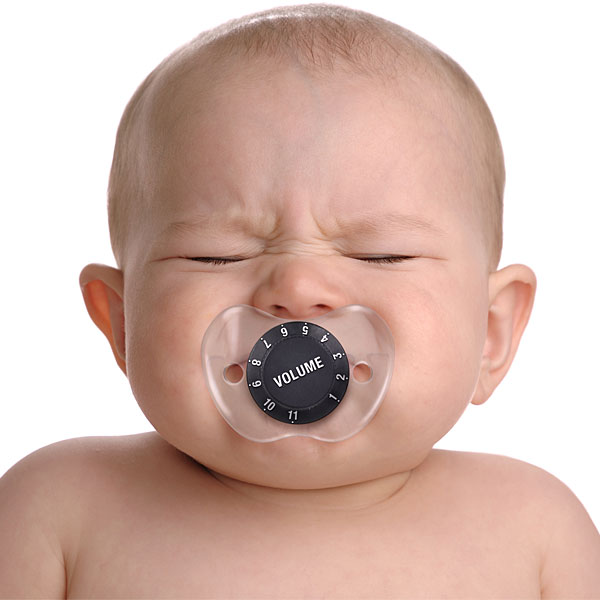Defining ‘Toddler’: Understanding the Age and Development Stages
What does toddler mean?When parents first hear the term ‘toddler’, it might bring to mind a child just learning to walk. But the age range it represents is broader than that. Generally, a toddler is a child between 1 and 3 years old. In this vital phase, they experience rapid growth and development. It’s during this time that they start to explore the world around them more fully.

In the initial part of the toddler stage, most children take their first steps. This milestone captures the essence of what does toddler mean – it marks the beginning of more independent movement. As they grow older, toddlers will refine these skills, learning to run and jump.
Cognitively, this period is just as dynamic. Toddlers begin to understand and use language. Many will say their first words around their first birthday, with vocabulary expansion being a clear sign of development.
Interactively, toddlers learn through play and start to assert their independence. This can also be a challenging period for parents as toddlers might show strong preferences and desires, displaying the ‘terrible twos’.
The development stages during the toddler years are marked by significant changes. They include physical milestones, cognitive advancements, language skills, and social-emotional growth. Each child is unique, and these milestones may happen earlier or later; however, understanding these stages can help parents support their child’s growth effectively.
Key Milestones in Toddler Development
When exploring what does toddler mean, it’s essential to consider the developmental milestones that characterize this period. Understanding these key milestones can help parents recognize and encourage their toddler’s growth and progress. Here are some of the critical milestones to watch for:
- First Steps: The moment a toddler takes their first steps is a milestone to cherish. It generally occurs around the one-year mark.
- Language Development: Initially, toddlers may only say a few words, but by age 3, many can speak in short sentences and have a vocabulary of several hundred words.
- Enhanced Motor Skills: Toddlers learn to run, jump, and climb. They enjoy exploring their physical abilities and the environment around them.
- Emotional and Social Growth: They start to show signs of empathy, can play with others, and may begin potty training. This growth is significant as it lays the foundation for future social interactions.
- Cognitive Advances: This is the age where they engage in pretend play, which shows the development of imagination and the understanding of the world.
These milestones are not only markers of what does toddler mean in terms of age but also indicators of their constant learning and exploration. While each child develops at their own pace, noticing and supporting these milestones can foster a toddler’s growth in a healthy and positive direction.
Typical Behaviors and Characteristics of Toddlers
When grasping what does toddler mean, it’s important to identify common behaviors and traits seen in this age group. Typical behaviors might seem puzzling or challenging to new parents. Still, they are all part of normal development. Let’s take a closer look at what you might expect from your toddler:
- Curiosity: Toddlers are known for their desire to explore everything. They are eager to touch, taste, and examine their surroundings.
- Tantrums: Emotional outbursts, often called ‘tantrums’, are common as toddlers learn how to express frustration and other strong feelings.
- Imitation: At this stage, toddlers begin to copy adults and other children, which is crucial for their social and cognitive development.
- Desire for Independence: Your toddler may show a strong will to do things ‘all by themselves’, from eating to choosing what to wear.
- Attachment to Caregivers: Despite their newfound independence, toddlers often have a deep attachment to their parents or primary caregivers.
- Varying Attention Spans: Some toddlers can focus on a single activity for a long period, while others switch interests frequently.
These behaviors reflect the rapid development occurring in a toddler’s brain and body. By understanding these characteristics, parents can better navigate the wonders and challenges of toddlerhood.

Understanding what does toddler mean involves more than just recognizing developmental milestones. It also means being prepared for the challenges that come with this dynamic age range. Navigating the hurdles of toddlerhood requires patience, creativity, and a healthy dose of humor. Here are some issues you may face and how to handle them:
- Dealing with Tantrums: One of the most publicized aspects of toddlerhood is tantrums. Keep calm, offer comfort, but remain firm in your boundaries.
- Fostering Independence: Toddlers want to do everything ‘by themselves’. Encourage this drive by letting them try tasks within safe limits.
- Handling Picky Eating: It’s common for toddlers to be selective in their food choices. Offer a variety of healthy options and let them pick.
- Ensuring Safety: With increased mobility comes increased risk. Childproof your home and stay vigilant to keep your toddler safe.
- Managing Short Attention Spans: Toddlers can flit from one activity to the next. Keep activities short and engaging to maintain their interest.
- Promoting Good Sleep: Consistency in bedtime routines can help manage sleep issues that often arise during toddlerhood.
- Teaching Sharing: Playdates can be an excellent opportunity for your child to learn about sharing and taking turns.
Remember, every child is unique, and what works for one may not work for another. Therefore, it’s critical to adapt your approach to fit your child’s individual needs. As always, providing love and reassurance is key to helping them thrive during these formative years. By embracing the challenges with the right strategies, you’ll help foster a strong, confident, and happy toddler.
Essential Tips for Parenting Toddlers
Parenting toddlers calls for a special approach that fosters both their growth and your relationship with them. Here are some essential tips that can help you during this period of parenthood:
- Establish Routines: Toddlers thrive on predictability. Have regular meal times, naps, and bedtime to create a sense of security.
- Positive Reinforcement: Focus on what your toddler does right. Offer praise for good behavior to encourage more of it.
- Set Clear Boundaries: Toddlers need to understand limits. Be clear and consistent with rules to help them learn.
- Use Simple Language: Communicate with short, clear sentences. This helps toddlers follow along and understand better.
- Offer Choices: Letting toddlers make simple choices helps foster independence. Offer two options so it’s not overwhelming.
- Encourage Play: Play is vital for learning. Provide various toys and activities that stimulate your toddler’s mind and body.
- Stay Calm: When facing tantrums or difficult behavior, keep your composure. This models self-regulation for your toddler.
- Teach Empathy: Use everyday situations to explain feelings and encourage your toddler to consider others.
- Limit Screen Time: Too much screen time can impact development. Set limits and offer alternative activities.
- Ensure Adequate Sleep: Stick to a bedtime routine to ensure they get enough rest, crucial for their growth.
- Stay Active Together: Physical activity is key for development. Take walks or play in the park to stay active.
- Read Daily: Reading to your toddler boosts language skills and imagination. Make it a daily habit.
Implementing these tips can make the journey of parenting a toddler more manageable and enjoyable. Remember that your patience and love are the most important things you can provide as they navigate this formative stage of their lives.
Nutritional Needs and Diet Recommendations for Toddlers
Toddlers are growing fast, so their nutritional needs are critical. A balanced diet is essential for their development. During this stage, toddlers require a variety of nutrients including proteins, carbohydrates, healthy fats, vitamins, and minerals to support their rapid growth and brain development.
Proteins are vital for building muscles and repairing cells. Offer foods like lean meats, eggs, beans, and tofu. Carbohydrates provide energy; include options such as whole grains, fruits, and vegetables. Healthy fats are necessary for brain development. Sources include avocado, nuts, and dairy products. Vitamins and minerals support overall health and can be found in a colorful array of fruits and vegetables.
Here are some practical diet recommendations for your toddler:
- Serve Small Portions: Toddlers have little stomachs. Small, frequent meals are better than large ones.
- Encourage Self-Feeding: Let toddlers use spoons or fingers to eat, promoting motor skills and independence.
- Be Patient with New Foods: It may take several tries before a toddler accepts a new food.
- Limit Sugary Drinks: Opt for water and milk over juices and sodas to prevent tooth decay.
- Snack Smart: Provide healthy snacks, like cut fruits or whole-grain crackers, between meals.
- Introduce Variety: Expose your toddler to different foods to develop their palate.
- Cook Together: Involve toddlers in meal prep to spark interest in food and eating.
- Set a Good Example: Eat healthy meals together as a family, modeling good eating habits.
Remember, every toddler is unique with their individual preferences and needs. Consult with a pediatrician if you have concerns about your child’s nutrition. By offering balanced meals and promoting positive eating habits, you’re setting the foundation for a lifetime of healthy eating for your toddler.

Frequently Asked Questions About Toddlers
Understanding what toddler means involves knowing the common questions that new parents might have. Below are FAQs that may help clarify common concerns and curiosities about toddlers:
- What is a toddler? A child between 1 and 3 years old experiencing rapid development.
- When do toddlers start walking? Most start around their first birthday, but it varies.
- How many words should a toddler say? By age 3, many speak in short sentences and have a few hundred words.
- What are typical toddler behaviors? Expect curiosity, tantrums, imitation, desire for independence, attachment to caregivers, and fluctuating attention spans.
- How can I deal with my toddler’s tantrums? Stay calm, offer comfort, be firm with boundaries, and avoid giving in to unreasonable demands.
- How do I encourage my toddler’s independence? Allow safe self-serving tasks and offer controlled choices.
- What should I feed my toddler? Offer small, varied, nutritious meals including proteins, carbohydrates, and healthy fats.
- How do I teach my toddler to share? Use playdates to encourage taking turns and understanding sharing.
- What is the best way to discipline a toddler? Use clear, consistent rules and positive reinforcement to encourage good behavior.
These FAQs can provide a helpful starting point for understanding and managing toddlerhood. They emphasize key aspects of a toddler’s growth and the importance of supportive parenting during these formative years.



